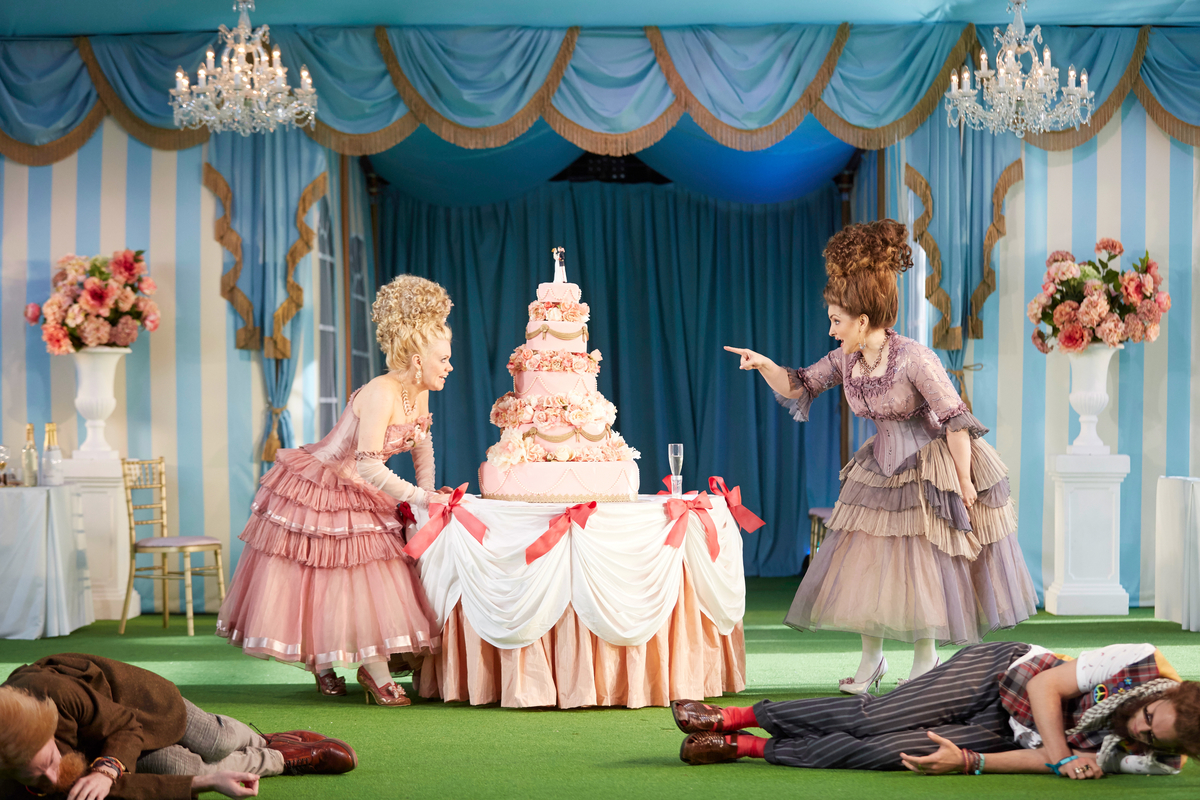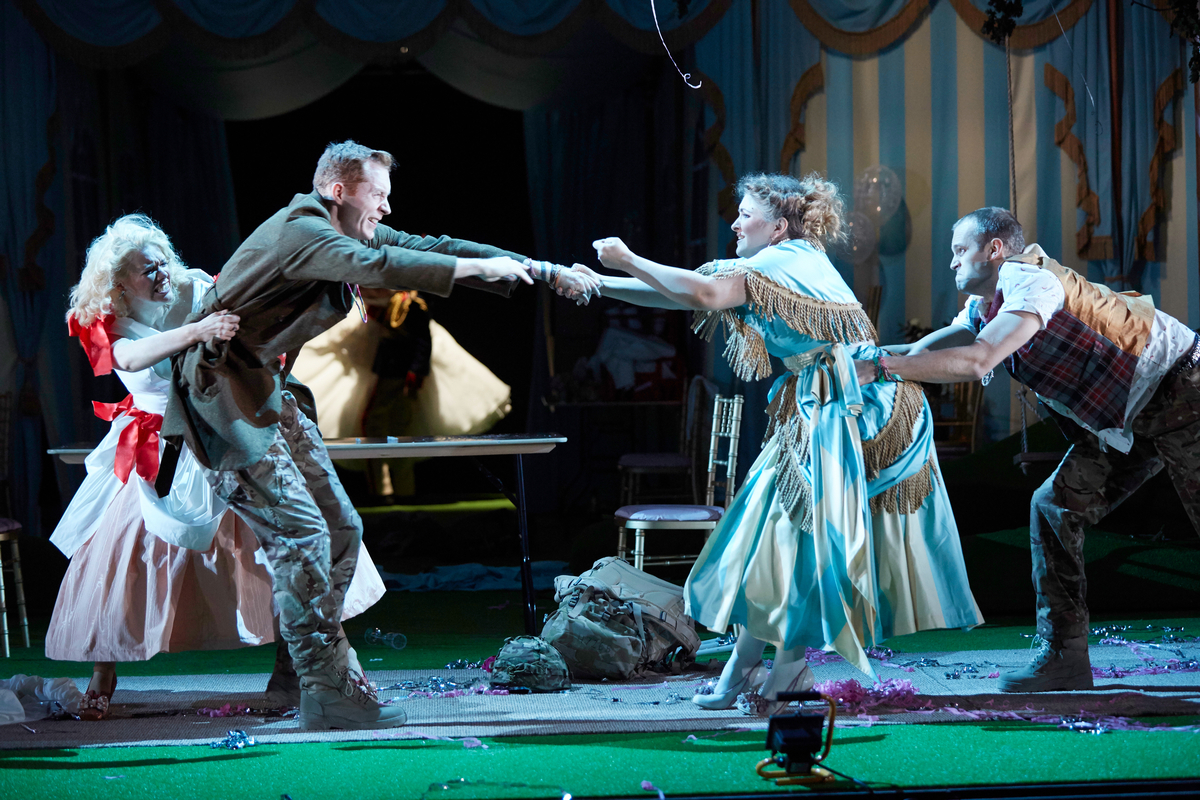Garsington Opera at Wormsley, 8 July 2015
With the exception of the fine Figaro from John Cox, recent Mozart productions by Garsington Opera have, to say the least, been questionable, but this reimagining of Cosi from John Fulljames and Douglas Boyd is about as good as it gets.
Setting the whole evening within a wedding celebration could seem yet another director’s concept but in practice it works splendidly. At no point does the action seem strained and the unfamiliar circumstances, the endlessly free flowing alcohol and the loss of inhibitions all make the unlikely events seem all the more credible. Even the outlandish costumes – the younger women in eighteenth century dresses and vast wigs – are not too far-fetched. Anyone who has seen a few episodes of Don’t Tell The Bride will know that!
Within the unfolding events of the wedding the two couples are put through their paces by a cynic who has seen it all before and an organiser – Despina – who is used to playing games. What proves so convincing is the quality of the characterisation which unfolds. Where at the start there is little to choose between them, the moral character of each develops before us, until the conclusion – though startling – is in retrospect inevitable. Kathryn Rudge’s Dorabella is a fiery individual, out to enjoy herself, and Smanie implacabili is hurled across the stage with passion. It is no wonder that she is easily seduced by Ashley Riches’ louche Guglielmo. As he draws her on they start to undress and their off stage sex is clearly happening. In contrast Andreea Soare’s beautifully sung Fiordiligi remains moral and unmoved, her Come scoglio the heart of her character. Robin Tritschler’s Ferrando is equally uncomfortable with the games until he starts to realise that maybe Fiordiligi has more to offer than the flighty Dorabella. It comes as little surprise in the final moments to find Fiordiligi and Ferrando together, leaving a distraught Guglielmo and Dorabella to face up to what they have done and lost.
Through all of this Douglas Boyd keeps the score moving with a sense of attack and immediacy which focuses on the narrative rather than allowing singers to indulge themselves. This does not mean that it is ever rushed or over-hasty. Ferrando’s un’aura amorosa is lovingly phrased, and there are many moments of real intimacy even in the extrovert surroundings of the wedding breakfast. Above all, the work is taken seriously. This may be a drama giocoso but it is not a light comedy. Lives are broken here – and though the young people may be able to pick up and start again, they will never be the same afterwards. Though Neal Davies’ avuncular Don Alfonso may set the games in progress, it is the young couples themselves who see them through and there is never any sense that he is a puppet master. If things end unhappily then Don Alfonso has proved his point.
Is it simply the mishaps of an over-enthusiastic wedding? Possibly, but then life is full of events over which we think we have control, only to learn later that maybe we didn’t. Mozart’s genius is to show us the mistakes before we make them.


